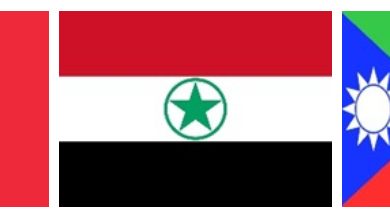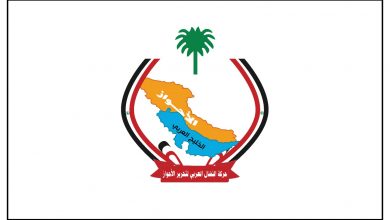Wave of labor strikes hits Al-Ahwaz region

Ahwazna
On Saturday 26th and Sunday 27th of April, around 150 of the Ahwazi labourers working on the construction of a subway system in Ahwaz, the eponymous regional capital, staged a two-day sit-in, demanding payment of months of backdated unpaid wages, with 600 other workers subsequently also declaring a strike in solidarity with them.
According to informed sources in Ahwaz, the 150 workers, who had been recruited by the Kayson Company, which is responsible for work on the subway system project, held the sit-in demonstration in front of the company’s headquarters building in the city in protest at the company’s failure to pay their wages for months.
The sources told Ahwazna that the workers have threatened not to return to work until they receive their backdated salaries for the full five months for which they have not been paid, with Kayson’s other 600 employees who walked out in solidarity with their colleagues also announcing that they will not return until the unpaid wages are paid.
In a related case, dozens of workers from a local pipe manufacturing company gathered for a demonstration in front of the offices of the occupying Iranian regime’s local authority building in Ahwaz on April 18th and 19th to demand the payment of backdated salaries and benefits for eight months of 2014, with the demonstrators also protesting at not receiving salaries and benefits for 2012 and 2013.
This followed an earlier demonstration by around 2,200 workers from the same company which was held at the main entrance to the factory on Monday February 9th, when the workers insisted that the management should respond to their reasonable demands over pay and conditions, demanding increased salaries and allowances, along with hazardous work bonuses in recognition of the dangers they face in the workplace.
Meanwhile, municipality workers in the city’s District 7 also announced their intention to stage a strike on May 15th over what they termed “procrastination” by the city’s governor in payment of salaries and bonuses, which have not been paid for several months. The municipal workers warned that they will continue their industrial action until they receive their full salaries and entitlements for the period.
Ahwazi workers face severe economic problems due to the endemic racial discrimination against Arabs by the occupying Iranian regime’s authorities, with most companies and manufacturing facilities in the area headed and run by Persian Iranians who harbor a profoundly racist hatred of the region’s indigenous Ahwazi Arab peoples and Arabs generally and do everything in their power to subjugate, demean and oppress Ahwazis.
It should be noted that the current wave of labour strikes and industrial unrest is not a new development, with persecution and non-payment of already low wages a routine issue which regularly leads to strikes and sit-ins at workplaces across the region.
What we are currently seeing, however, is a new level of injustice and contempt towards the Ahwazi workers, with the Kayson Company avoiding paying Ahwazi staff even while spending vast amounts of money on unnecessary expenditures like bringing in superfluous ‘experts’ from Tehran to begin new projects even before completing work on the subway project or others it has started. This imprudent approach has led to the company falling ever-further into debt, with the Ahwazi workers, as always, paying the price for such misguided mismanagement.
The recent surge in protests in the region against the occupying regime’s systemic viciously racist policies and brutality against Ahwazi workers has been met with massive and disproportionate violence by the regime’s security and intelligence forces.
This has been unleashed on workers simply for demanding payment of their salaries and recognition of their rights, with many protesting against the institutionalized anti-Arab racism by Persian employees against Ahwazis in the workplace.
Persians hold 99 percent of the management and senior positions in all fields in Ahwaz, including government and private organisations, industry and the oil and gas sector. Despite the fact that the Ahwaz region holds around 80 percent of Iran’s oil and gas resources and is thus the source of most of the occupying regime’s income, Ahwazi people are routinely subjected to savage and demeaning racial discrimination due to their ethnicity and skin colour by Persian Iranians who benefit from their own position of privilege and power to subjugate and demean Ahwazis.
The recent shocking self-immolation of an Ahwazi fruit-vendor after his stall and merchandise were confiscated by officials of the occupying Iranian authorities is further evidence of the intensifying and systemic persecution of the Ahwazi people, who are brutally oppressed and maltreated in every area of life, including the field of employment and trying to earn a living.


